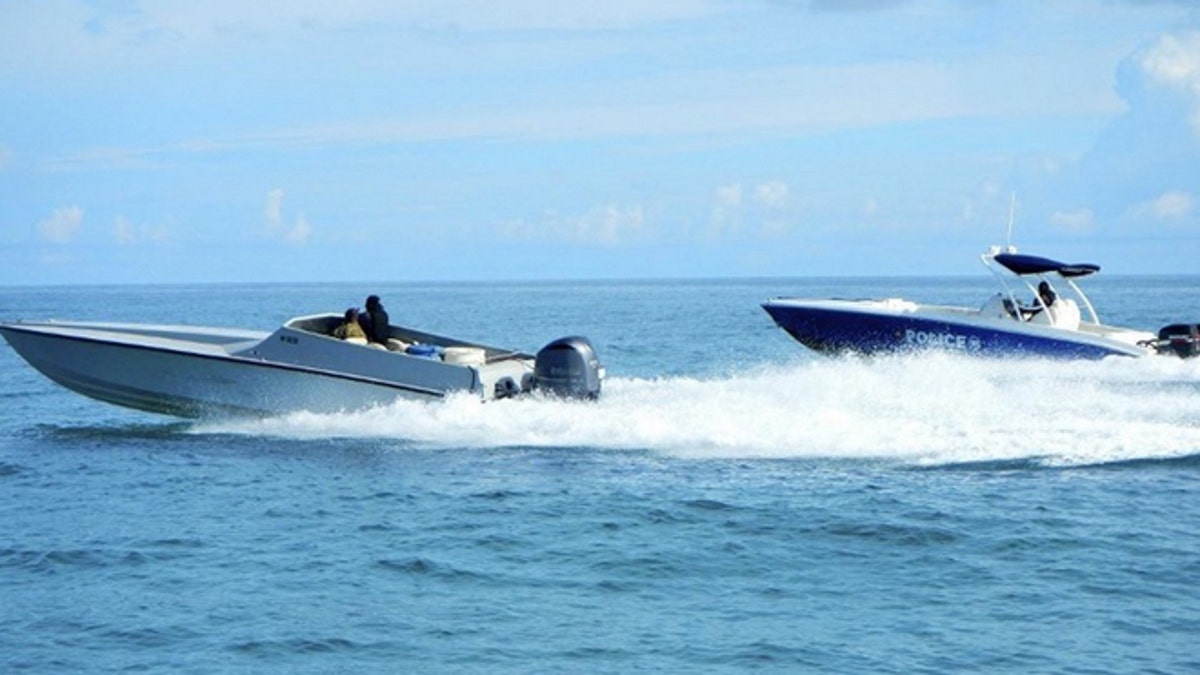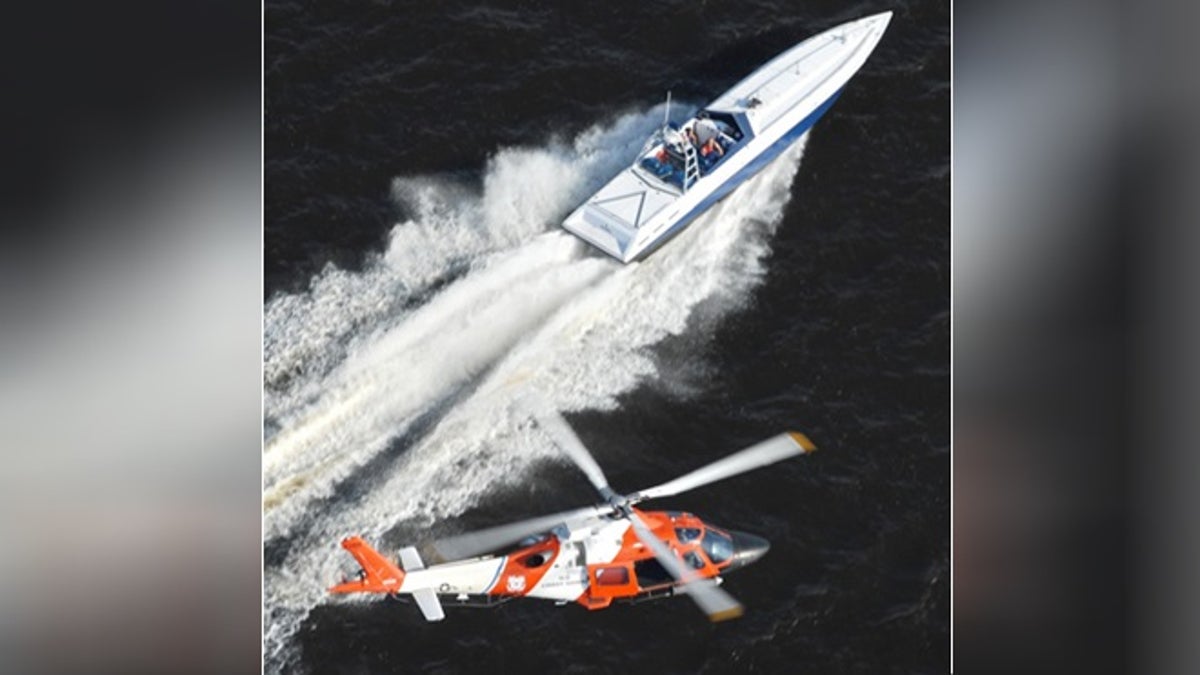
Sept. 18 2014: A maritime patrol aircraft detected this 40-foot go-fast vessel in the Caribbean Sea. DEA and Bahamian Police officials responded to the location and detained two suspects after locating 40 bales of marijuana. (U.S. Coast Guard photo)
Latin America's drug cartels are leaving the U.S. Coast Guard in their wake, with new and faster speedboats law enforcement officials say are virtually undetectable by radar.
“They [cartels] are being forced to do something that they would rather not.”
The new boats, nicknamed "Picudas," after a tropical fish whose long, thin bodies they resemble, are made of fiberglass, making them invisible to radar and efficient with fuel. While older smuggling vessels took as long as three days to make the trip from Costa Rica to Jamaica, the Picuda can make the trip in two.

Dialogo, a newspaper published by the Pentagon’s Southern Command, quoted one Coast Guard source that called the craft “a wave-breaking go-fast wonder that defies radar detection.” The boats give the bad guys a leg up on authorities trying to cut off the flow of South American drugs, according to the article.
“They [cartels] are being forced to do something that they would rather not,” Adam Isacson, Senior Associate for Regional Security Policy at the Washington Office on Latin America said to FoxNews.com. “They would like to be able to make one trip. Instead they are forced to divide their load and take these short trips. It means that they are being inconvenienced and it is more expensive.
“But it’s clearly indicative of the cat-and-mouse game they are playing with the law.”
The Southern Command hunts down the cartel boats as part of Operation Martillo, a multi- military branch effort which targets trafficking routes in coastal waters along the Central American isthmus.
A recently as November, the Navy’s USS Gary and US Coast Guard teams seized 580 kilograms for cocaine from a Picuda in international waters off the coast of Central America.
Many of the cartels also use submersibles, or narco-submarines, on smuggling routes to avoid detection. The small vessels are made by the cartels themselves and specifically designed to also be difficult to detect with radar. They traditionally used them to smuggle narcotics from Columbia to Mexico, where the cargo is then transported via land to the United States. They were first discovered by law-enforcement in 1993 but have not been spotted in recent times.
“There really hasn’t been a lot of them found lately which likely because they are harder to detect,” said Isacson.
Other experts say that the use of the Picuda is just the latest innovation in long line of methods used since the modern age of drug-smuggling began.
"Organized crime has been incredibly inventive and innovative when it comes to outwitting or outrunning the authorities," Duncan Wood, director of the Wilson Center's Mexico Institute said to FoxNews.com. "They have used speed boats in the past, and they continue to use slower boats today alongside faster options. What is fascinating is to see how the cartels in various parts of the world have used different technologies, including submarines and planes to get their product across borders."








































